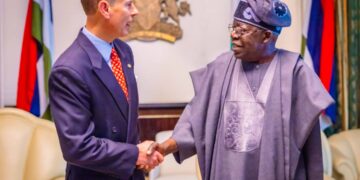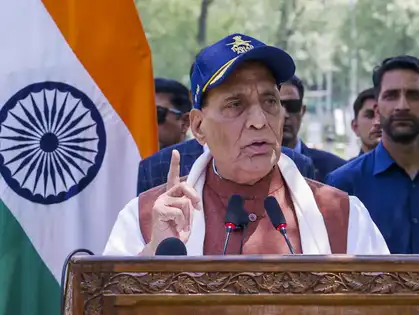India’s Defence Minister Rajnath Singh on Friday urged the International Monetary Fund (IMF) to reconsider its decision to release $1 billion in financial assistance to Pakistan, alleging that the funds could be used to support terrorism.
“I believe a significant portion of this IMF loan will be diverted to finance terror infrastructure,” Singh said while addressing troops at an air force base in western India. “Providing economic aid to Pakistan amounts to indirectly funding terrorism.”
His remarks come amid heightened tensions between India and Pakistan, which recently exchanged missile, drone, and artillery strikes. A ceasefire has been in effect since Saturday.
Despite India’s objections, the IMF last week completed a review of Pakistan’s loan programme, unlocking approximately $1 billion and approving an additional $1.4 billion in bailout funds. India, which represents Bhutan, Sri Lanka, and Bangladesh on the IMF board, abstained from the vote, citing concerns over Pakistan’s historical misuse of such assistance.
A statement from India’s finance ministry expressed skepticism, saying: “We remain concerned about the efficacy of IMF programmes in the case of Pakistan, given its poor track record.”
Pakistan narrowly avoided default in 2023 following a severe political and economic crisis. The IMF bailout; its 24th since 1958 helped the country manage a spiraling debt burden.
Singh also warned of broader security risks, claiming a close link between Pakistan’s government and terrorist groups. “There is a real danger that Pakistan’s nuclear arsenal could fall into the hands of terrorists. This is a threat not only to Pakistan but to global security.”
The latest round of fighting erupted on May 7 when India launched airstrikes on what it described as terrorist camps inside Pakistan. The operation followed an April attack in Indian-administered Kashmir that killed 26 civilians, the deadliest such incident in the region in decades. India blamed Pakistan-based militants for the assault, an accusation Islamabad has denied.
The subsequent four days of conflict left at least 70 people dead on both sides, including dozens of civilians.





































